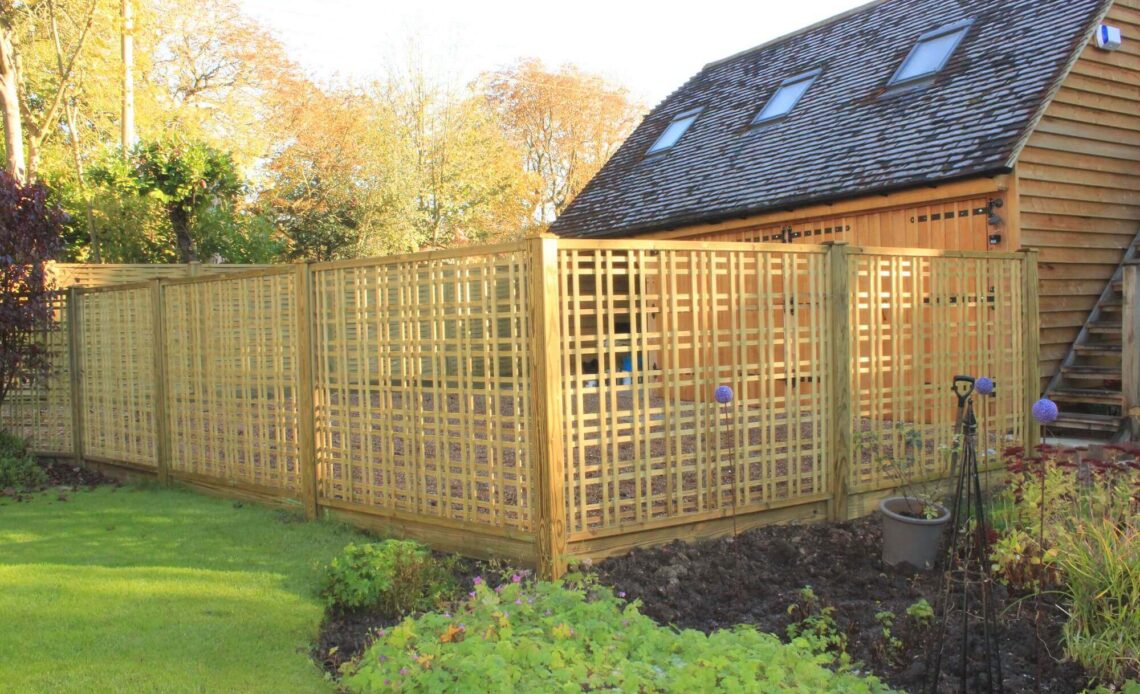Choosing the right garden fence is a crucial decision that can significantly impact the aesthetics, functionality, and overall ambiance of your outdoor space. With countless options available at https://www.bennersgardens.com/, ranging from classic wooden picket fences to modern metal designs, it’s important to consider several factors to ensure you select a fence that meets your needs and complements your garden landscape. In this article, we’ll discuss the key considerations to keep in mind when choosing a garden fence.
Define Your Goals:
Before you begin exploring fence options, take some time to define your goals and priorities. Are you primarily concerned with keeping wildlife out of your garden? Do you want to create a sense of privacy or security? Are you looking to enhance the aesthetic appeal of your garden? By identifying your goals upfront, you can narrow down your options and focus on fence designs that align with your needs and preferences.
Consider Maintenance Requirements:
Another important factor to consider when choosing a garden fence is the level of maintenance it requires. Some materials, such as wood, may require regular staining or sealing to protect against rot and decay. Others, such as vinyl or metal, are virtually maintenance-free and require only occasional cleaning to maintain their appearance. Consider how much time and effort you’re willing to invest in maintaining your fence and choose a material that aligns with your maintenance preferences.
Evaluate Durability and Longevity:
Durability and longevity are essential considerations when choosing a garden fence, especially if you live in an area with harsh weather conditions or high levels of wildlife activity. Opt for materials that are known for their durability, such as metal, vinyl, or composite materials, which are resistant to rot, decay, and insect damage. Additionally, consider factors such as UV resistance and weather resistance to ensure your fence will withstand the elements and maintain its appearance over time.
Determine Your Budget:
Your budget will play a significant role in determining the type of fence you choose for your garden. While some materials, such as wood, may be more affordable upfront, they may require more maintenance and have a shorter lifespan than other options. On the other hand, materials like metal or vinyl may have a higher initial cost but offer long-term savings in terms of maintenance and replacement costs. Consider your budget constraints and weigh the upfront cost against the long-term value when choosing a garden fence.
Assess Aesthetic Appeal:
The aesthetic appeal of your garden fence is an important consideration, as it can significantly impact the overall look and feel of your outdoor space. Consider the architectural style of your home, the design of your garden, and your personal taste when selecting a fence design. Whether you prefer the classic charm of a wooden picket fence, the modern elegance of a metal fence, or the natural beauty of a living fence, choose a design that complements your garden landscape and reflects your individual style.
Think About Functionality:
In addition to aesthetics, consider the functionality of your garden fence. Think about how you plan to use your outdoor space and what features are important to you. For example, if privacy is a priority, opt for a solid fence design with minimal gaps between slats. If you have pets or children, choose a fence with sturdy construction and no gaps at the bottom to prevent them from escaping. By considering the functionality of your fence, you can ensure it meets your specific needs and enhances your outdoor living experience.
Check Local Regulations:
Before installing a garden fence, be sure to check local regulations and zoning codes to ensure compliance with any height, material, or design restrictions. Some homeowners associations or municipalities may have specific guidelines governing the installation of fences, so it’s important to do your homework before proceeding. Additionally, be sure to obtain any necessary permits or approvals before beginning construction to avoid potential fines or penalties.

